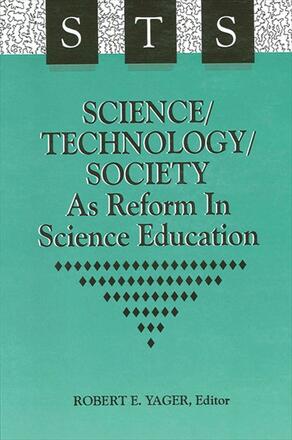Preface
Part I: STS as a Reform Movement in Science Education
1. History of Science/Technology/Society as Reform in the United States
Robert E. Yager
2. Meaning of STS for Science Teachers
Robert E. Yager
3. Is Science Sinking in a Sea of Knowledge? A Theory of Conceptual Drift
John Lochhead and Robert E. Yager
4. The Congruency of the STS Approach and Constructivism
Martha Lutz
Part II: What an STS Approach Can Accomplish
5. Mastery of Basic Concepts
Lawrence Myers
6. Process Skills Enhancement in the STS Classroom
Julie Wilson and Sylvia Livingston
7. The Affective Domain and STS Instruction
William F. McComas
8. Creativity and the Value of Questions in STS
John E. Penick
9. Using What Has Been Learned: The Application Domain in an STS-Constructivist Setting
Gary F. Varrella
10. Enhancement of Opportunities for Low-Ability Students with STS
Eric Olson and Srini Iskandar
11. Breaking the "Mold"—STS Allows Celebrating Individual Differences
Janice Koch and Susan M. Blunck
12. Advantages of STS for Minority Students
Joan Braunagel McShane and Robert E. Yager
13. Enhancing Student and Teacher Understanding of the Nature of Science Via STS
Lawrence R. Kellerman and Chin-Tang Liu
14. An STS Approach Accomplishes Greater Career Awareness
Chin-Tang Liu and Robert E. Yager
Part III: What the STS Approach Demands
15. Different Goals, Different Strategies: STS Teachers Must Reflect Them
John E. Penick and Ronald J. Bonnstetter
16. Textbooks with Special Qualities for STS
Robert E. Yager and Betty Chiang-Soong
17. Scientific Literacy for Effective Citizenship
Jon D. Miller
18. STS: A Crossroads for Science Teacher Preparation and Development
Herbert K. Brunkhorst and David M. Andrews
19. The Identification of Science Concepts in STS Teaching That Are Really Essential
Martha Lutz
20. STS Promotes the Rejoining of Technology and Science
Karen F. Zuga
Part IV: STS Initiatives Outside the United States
21. STS in Britain: Science in a Social Context
Joan Solomon
22. STS through Physics and Environmental Education in the Netherlands
Harrie M. C. Eijkelhof, Koos Kortland, and Piet L. Lijnse
23. STS Initiatives in Japan: Poised for a Forward Leap
Namio Nagasu and Yoshisuke Kumano
24. STS Initiatives in Australia
Geoffrey Giddings
25. STS in Developing Countries in the Pacific
Jack Holbrook, John Craven, and Martha Lutz
Part V: Supporting the STS Reform
26. National Association for Science, Technology, and Society
Stephen H. Cutcliffe
27. The Iowa Chautauqua Program: A Proven In-service Model for Introducing STS in K-12 Classrooms
Susan M. Blunck and Robert E. Yager
28. National Science Education Standards: A Turkey, a Valentine, or a Lemon?
Janice Koch
29. STS Means Science across the Curriculum: Or a White Coat for Every Teacher
John W. McLure
Endword
Index
